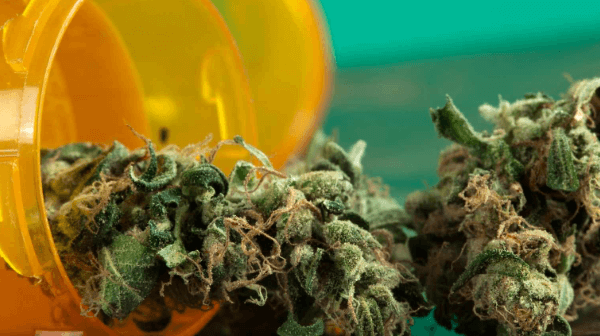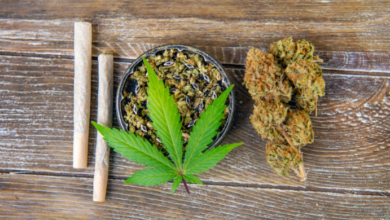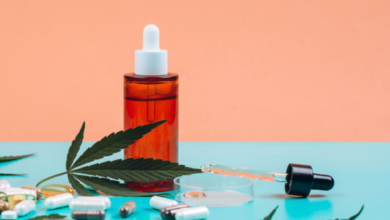
Louisiana’s Medical Marijuana Program: A Comprehensive Overview of Product Options and Dispensaries
Louisiana has rapidly transformed its landscape regarding medical marijuana since launching its program in 2015. What began as a limited, tightly regulated initiative has evolved into a robust statewide system that offers a broad range of cannabis-based treatments. With increasing support from patients, doctors, and policymakers, the state now features numerous licensed pharmacies and a wide selection of medical marijuana products. This article explores Louisiana’s medical marijuana program—its foundation, product offerings, qualifying conditions, access points, and the many ways it benefits patients across the state.
A Brief History of Louisiana’s Medical Marijuana
The journey toward medical marijuana in Louisiana began in 2015 when lawmakers passed Act 261, authorizing the use of low-THC cannabis oil for patients with severe conditions such as epilepsy. The program expanded in 2019 with Act 378, allowing broader access to botanical (plant-based) cannabis and more conditions as qualifying criteria. By 2020, licensed pharmacies began dispensing a wider variety of medical cannabis products, setting the stage for a diverse, patient-focused system that remains a model for other states.
Qualifying Conditions and Patient Eligibility
Primary Conditions Included
Louisiana’s program covers a comprehensive list of debilitating and chronic conditions. Patients must be diagnosed with one or more of the following:
- Cancer and treatment-related symptoms (e.g., nausea, pain, appetite loss)
- Epilepsy and seizure disorders
- Multiple Sclerosis (MS)
- Parkinson’s disease
- AIDS/HIV-related symptoms
- Glaucoma
- Spasticity syndromes (e.g., spinal cord injury, cerebral palsy, ALS)
- Crohn’s disease and ulcerative colitis
- Neuropathic and intractable pain
- PTSD
- Severe psychiatric conditions with incapacitating symptoms
- Complex conditions with risks of death or chronic impairment
How to Become a Patient
To join the program, patients must:
- Be a Louisiana resident.
- Have a qualifying medical condition documented by a state-certified physician.
- Complete an application through the state’s medical marijuana registry.
- Receive approval and an identification card to make purchases.
Adult caregivers can also register to assist patients, while minors require a dedicated caregiver to apply and manage treatment on their behalf.
Dispensaries and Pharmacies Across the State
Licensed Pharmacies
Louisiana’s medical marijuana is exclusively dispensed through licensed pharmacies—similar to regular prescription medicine. As of mid-2025, over 40 pharmacies across the state are approved to distribute botanical and low-THC medical cannabis products. These pharmacies are strategically located to serve both urban and rural populations, ensuring statewide access.
Dispensary Locations and Availability
The geographic distribution includes:
- Urban hubs like New Orleans, Baton Rouge, and Shreveport, featuring multiple dispensing locations per city.
- Smaller cities such as Lafayette, Monroe, and Alexandria, each with at least one licensed pharmacy.
- Rural communities, where pharmacies are located in regional hospitals or medical centers to reach underserved populations.
Pharmacies generally operate during regular business hours, and many offer same-day service once patients pick up a prescription. They are staffed by pharmacists trained to guide patients in product selection, dosing, and administration instructions.
Product Types Available to Louisiana Patients
Louisiana’s medical marijuana program emphasizes pharmaceutical-grade quality, consistency, and safety. Products are cultivated and processed under strict regulations, ensuring they meet state standards for purity and cannabinoid potency. Available categories include:
1. Botanical Flower
Whole or broken-down cannabis buds specifically cultivated for medical use. Available in precise THC and CBD ratios, botanical flower is ideal for patients who benefit from inhalation and rapid symptom relief.
2. Pre-Rolls
Conveniently pre-rolled joint-style options using the same regulated flower, with standardized dosing for easy and consistent use.
3. Vape Cartridges
Disposable or refillable cartridges filled with cannabis oil. Provide a smoke-free inhalation method that delivers fast-acting relief with consistent dosing.
4. Edibles
Gummies are currently the only edible format approved for medical use, offering easy-to-manage doses that provide longer-lasting effects than inhalable forms.
5. Tinctures and Oral Liquids
Alcohol or oil-based tinctures designed for sublingual (under the tongue) absorption. They come in dropper bottles with clearly labeled THC/CBD ratios and dosages.
6. Capsules/Tablets
Standardized capsules containing measured doses of THC, CBD, or a combination. They are an ideal choice for patients who prefer a swallowable, familiar medication form.
7. Topicals
Lotions, balms, and transdermal patches that deliver cannabinoids directly to targeted areas. These are used primarily for localized pain, inflammation, and skin conditions without psychoactive effects.
Dosing and Purchase Limits
Louisiana regulates medical marijuana purchases carefully:
- The state limits THC dosage to prevent overconsumption and ensure patient safety.
- Purchase limits are expressed as a maximum number of THC milligrams per 30-day period.
- Dispensaries track the total THC dispensed per patient and enforce monthly limits using a statewide database.
The program offers flexible dosing guidance. For example, patients experiencing chronic pain may utilize a botanical flower product with a low-to-moderate THC percentage once or twice daily. Each product’s label and pharmacist consultation helps identify safe starting and effective dosing recommendations.
Patient Experience and Support
Education and Counseling
Every pharmacy provides counseling at the point of sale. Licensed pharmacists discuss factors such as dosing frequency, onset of effects, duration, potential drug interactions, and when to adjust or discontinue use. Patients can also receive written documentation or digital guides for reference.
Assistance Programs
Louisiana complies with federal healthcare protections. Patients with limited income may qualify for fee reductions or other financial support programs. While medical marijuana isn’t covered by Medicaid or private insurance, pharmacies sometimes partner with nonprofit organizations to offer discounts or patient assistance grants.
Compliance and Safety
- All products are batch-tested and labeled for cannabinoid strength and contaminants such as pesticides, heavy metals, and microbials.
- Pharmacies adhere to secure storage standards, and all records are maintained confidentially.
- Regular audits and state inspections ensure quality, safety, and regulatory compliance.
Trends, Access, and Program Impact
Patient Enrollment
Louisiana saw robust growth in enrollment following the 2020 roll-out of botanical programs. Wellness-focused patients especially veterans, chronic pain sufferers, and cancer survivors—have significantly benefited from state access to regulated medical cannabis.
Expanded Research and Clinical Feedback
Pharmacists and doctors continually share patient outcomes and dosing insights. Early medical research conducted in Louisiana, along with anecdotal evidence, shows consistent relief in areas such as:
- Chronic and neuropathic pain
- Chemotherapy-induced nausea
- Spasticity and muscle stiffness
- PTSD-related sleep and anxiety issues
These positive results are fueling interest in expanded research, particularly for conditions like Alzheimer’s, autism spectrum disorders, and non-cancerous seizure types.
Accessibility Improvements
A growing number of pharmacies across both major metropolitan areas and smaller communities help eliminate previous access barriers. Future initiatives aim to extend hours of operation and integrate telehealth support for rural patients with limited mobility.
Challenges and Future Directions
Limited Form Factor Variety
While gummies and flowering buds offer essential forms of treatment, some patient advocates lobby for a broader product lineup such as transdermal patches, dissolvable strips, and extended-release formulations. Further expansions may occur as evidence supports additional dosage forms.
Insurance Coverage
Because medical cannabis remains federally unscheduled, it is excluded from insurance coverage and federal healthcare programs. Patients often express interest in establishing reimbursement pathways, either through state healthcare reform or employer-sponsored care plans. Progress in Tampa, federal implications loom as potential leverage for program expansion.
Continued Legislative Evolution
Louisiana lawmakers are exploring expansion proposals, including home cultivation allowances, more refined low-dose CBD-only card tiers, and simplified renewal processes. Legislative sessions continue to explore changes that could strengthen the program’s reach.
Conclusion
Louisiana has successfully built a structured, well-regulated medical marijuana program that prioritizes patient safety, product quality, and widespread access. With more than 40 licensed pharmacies statewide offering flower, pre-rolls, vapes, edibles, tinctures, capsules, and topicals, patients can work with professionals to find personalized cannabis treatments.
The program reflects a growing integration of cannabis into conventional medical therapy. Though challenges around product variety, insurance access, and legislative updates remain, Louisiana’s model centered on medical oversight and reliable urgency of care sets a standard for how states can responsibly deploy cannabis as medicine.
As more patients benefit from their Louisiana marijuana card, Louisiana’s program continues to evolve and pave the way for improved health outcomes and expanded therapeutic options.




